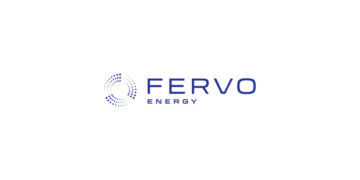New York-based heart health monitoring startup Cleerly, which has developed an AI-enabled approach for spotting heart diseases, has closed a Series C funding round of $192 million. The oversubscribed funding round was led by funds and accounts advised by T. Rowe Price Associates, Inc. and T. Rowe Price Investment Management, Inc., and Fidelity Management and Research Company.
Other investors spanning the health care, pharmaceutical and technology sectors that participated in the round were Sands Capital, Piper Sandler’s Merchant Banking and Heartland Healthcare Capital funds, Mirae Asset Capital, Peter Thiel, Breyer Capital, and Novartis.
Cleerly’s existing investors also participated in the financing, including Vensana Capital, LRVHealth, New Leaf Ventures, Cigna Ventures and DigiTx Partners. This new funding brings the total raised by the fast-growing health care company to $248 million, which includes its Series B round in 2021.
The startup will use the recent infusion to build its team, expand its software’s commercial reach, and support more than a dozen ongoing clinical trials to back up the technology’s claims further to improve heart health.
“At Cleerly, we are passionate about our mission to create a new standard of care for heart disease. We are grateful for this round of financing that will further enable our work and believe it provides a resounding vote of confidence in our vision for the future of cardiovascular care,” said James Min, CEO and founder of Cleerly.
Cleerly’s technology help predict potentially fatal heart disease
The startup has developed an AI-enabled approach for evaluating computed tomography (CT) angiograms. The diagnosis after rendering done by the AI is far more accurate of a patient’s risk of heart attack, shifting away from the way heart disease has previously been assessed through indirect surrogate markers of disease.
Historically heart disease was assessed using indirect surrogate markers of disease. These surrogates too often fail patients as predictors and miss the majority of patients who will suffer a heart attack. In fact, more than half of all patients who experience a heart attack show no symptoms before their potentially catastrophic event.
When patients present with symptoms of a cardiac event, Cleerly offers support to physicians that improves diagnostic certainty to personalize therapeutic choices that offer clinical benefit and reduce total care costs.
“The status quo for heart health simply isn’t good enough – for patients, providers, or payors – and our proven approach to examining for early signs of heart disease through the build-up of arterial plaque promises to deliver the change we need right now,” said James Min, CEO and founder of Cleerly.
AI predictions are as good as angiography results
Cleerly’s machine learning AI assesses noninvasive CT angiography scans of the heart to characterize and measure the amount of plaque built up in the arteries. By evaluating the likelihood that those build-ups could completely cut off the oxygen supply to a patient’s heart, the software can identify early signs of heart disease and calculate the risk that a patient will experience a heart attack.
The system is powered by a database of millions of previously assessed CT images and data collected in clinical trials spanning thousands of patients. Cleerly aims to further expand that repository with its ongoing studies, which plan to enroll more than 100,000 patients from across the globe within the next decade.
In a study published earlier this year, Cleerly’s FDA-cleared algorithms could analyze plaque build-ups in the arteries as accurately as the results of angiography exams. Altogether, the AI’s analyses demonstrated 94 percent sensitivity and 82 percent specificity, for an overall accuracy level of at least 84 percent.

































